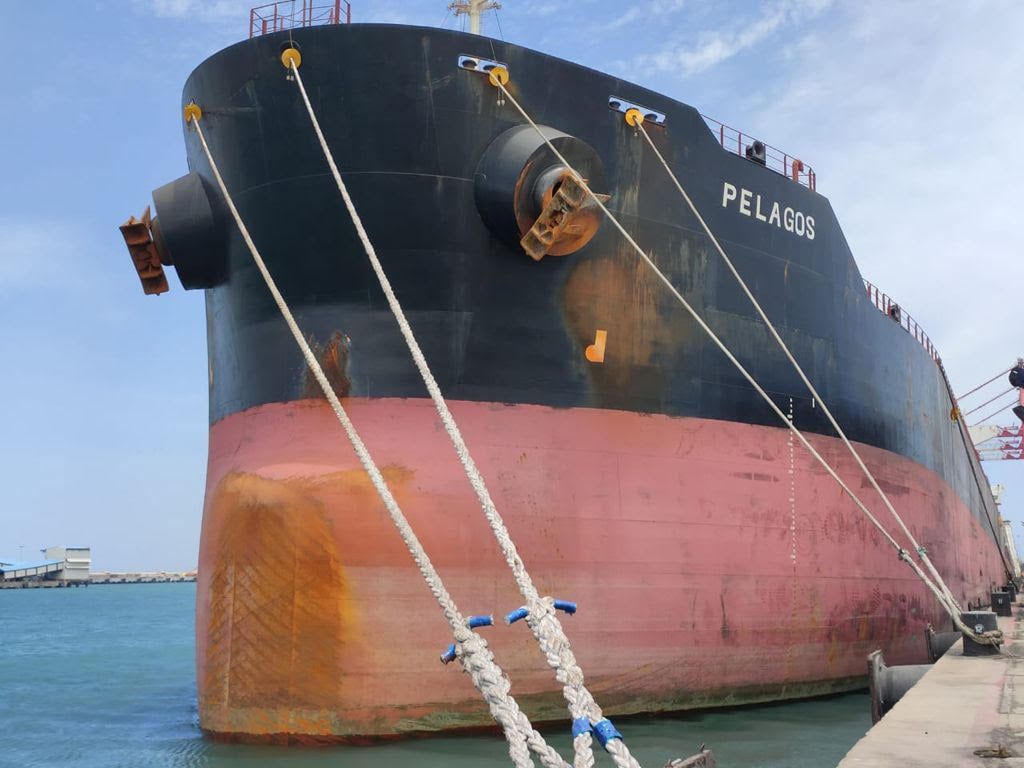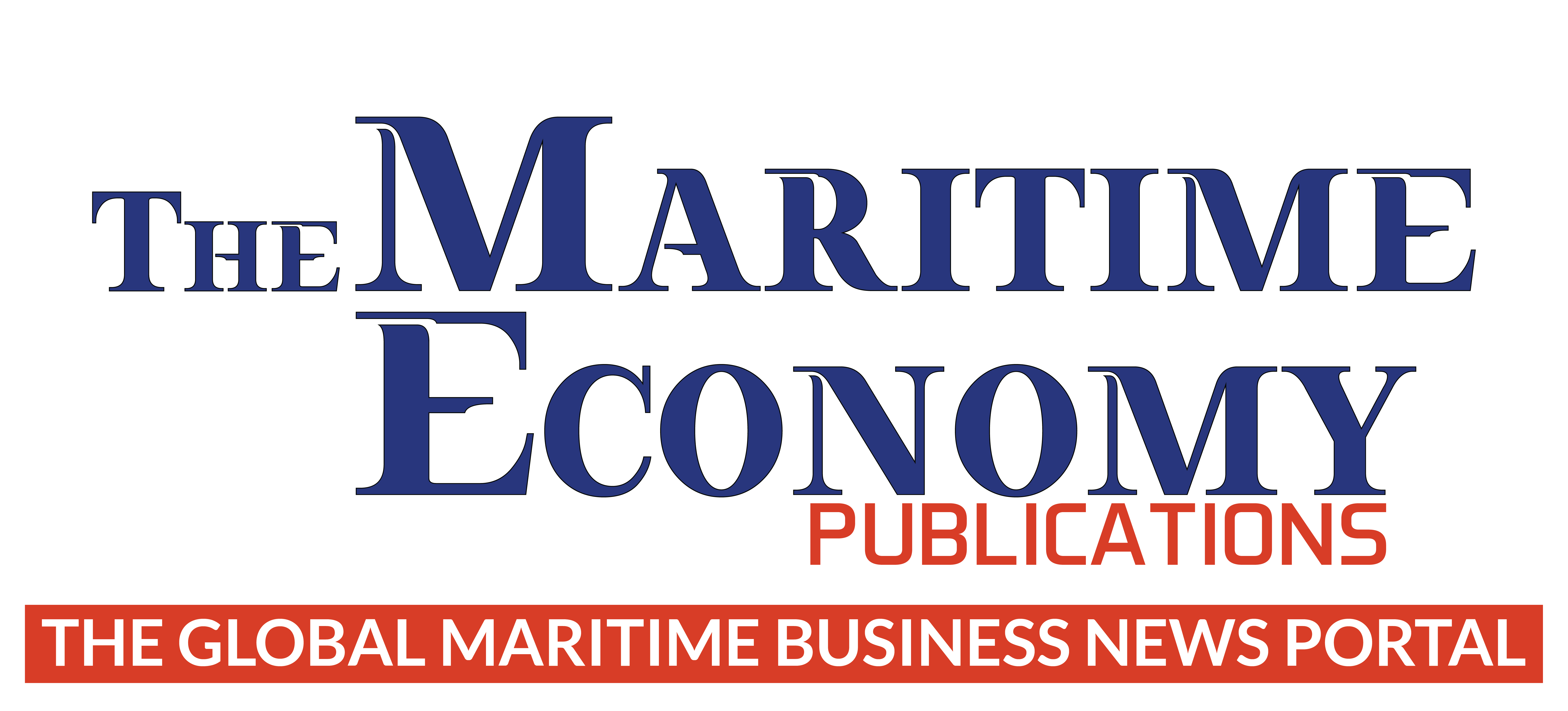Policy Brief Note - Draft Green Ports Policy (GPP)

Ministry of Ports, Shipping and Waterways | March 2022
- India has emerged as a leader in climate change and has declared its ambitious INDC targets:
- Reduce emissions intensity per unit GDP by 33-35% below 2005 levels by 2030.
- Create additional carbon sink of 2.5-3.0 Billion tonnes of carbon di-oxide through additional tree cover.
- Increase share of non-fossil fuel-based power generation capacity to 40% by 2030.
- With these long-term sustainability vision in place, Indian ports have been striving to cut down pollutions and emissions to help India’s achieve its sustainability goals as well as transform the Indian shipping sector into a safe, efficient and sustainable space.
- To drive this agenda, Govt. of India created the Maritime India Vision (MIV) 2030, which aims to strengthen the Ports, Shipping and Waterways sectors of India through implementation of over 150+ interventions to achieve the goal of “Safe, Sustainable and Green Maritime Sector” and sets the foundation for coherent action.
- To achieve the targets as set in MIV 2030, Ministry of Ports, Shipping and Waterways (MoPSW) has drafted the ‘Strategic Action Plan towards a Safe, Sustainable and Green Ports envisaged in MIV 2030’ or the ‘Green Ports Policy (GPP)’
Green Ports Policy (GPP)
- GPP aims to provide guidance on the possible implementation model and incentive framework, thereby encouraging all stakeholders (port operators, port authorities etc.) to implement initiatives that will ultimately reduce sector’s climate change impact.
- GPP captures the focus areas and associated outcomes, implementation roadmap, cost recovery mechanism, capacity building & governance mechanism for the involved stakeholders.
- Proposed targets in GPP are in line with the MIV 2030 as well as the INDC & IMO 2030 Targets.
Key features of the Policy:
- Focus areas identified and outcomes/ targets clearly defined:
- GPP highlights a set of primary targets that needs to be achieved for ports to attain the ‘Green Port’ status. Five key focus areas include (i) GHG Emissions, (ii) Pollution control, (iii) Preserve Biodiversity, (iv) Resource utilization, (v) Productivity driven by automation.
- Targets set under GPP:
- GHG Emissions
- 2021 as baseline; Reduce emissions by 20% by 2025 and 40% by 2030
- Ensure min. 60% supplied power – from RE sources by 2025 and 100% green power by 2030.
- Pollution control
- Pollutant-wise targets set for 2025 & 2030 - maximum reduction target set for black carbon (40% by 2025 & 80% by 2030), followed by NOx, PM10, PM2.5 (25% by 2025 & 50% by 2030) and minimum reduction targets for Non-methane volatile organic compounds (15% by 2025 & 30% by 2030)
- Air quality in-line with WHO guidelines values – absolute target for each port
- Biodiversity
- Achieve Zero bio-diversity loss by 2025,
- Achieve Zero waste, Zero Waste to Landfill, Zero Incineration, Zero Unauthorized Disposal, Zero Effluent Discharge by 2030
- Water Pollution by shipping companies or any related 3rd party - 50% Reduction by 2025 and 100% by 2030
- Resource Utilization
- 2021 as baseline
- Recycle and reuse 50% of port’s water consumption by 2025
- Create provisions for rainwater harvesting within the port premises by 2025
- Implement Sewage Treatment Plant within the port
- Ensure at least 20% reduction in water consumption by 2025
- Productive drive by automation
- Identify options and implement solutions to enhance automation levels in select port activities to enhance productivity and achieve the set outcomes.
- Ensuring accountability through well-defined roles and responsibility matrix:
- GPP also defines the roles and responsibility matrix of the various stakeholders (Port operator, Port Authority, Non-major port operators, State Maritime board/ departments, MoPSW etc.) to ensure accountability, adherence to implementation timelines as well as periodically measure the outcomes against the set targets.
- Robust implementation mechanism with 3rd party vetting and approval for assessing project viability/ impact:
- GPP also highlights the implementation mechanism & roadmap – Implementing agencies to prepare a detailed action plan customized based on port conditions, propose financing mechanisms as well as get necessary approvals from concerned authorities
- Implementing agency shall also be responsible for finalizing the interventions to achieve the set outcomes as well as identify the steps to be taken to implement the interventions.
- An impact assessment report shall also be prepared by the port operator/ authority – to estimate the annual increase in operating cost, and other adjustments required from MoPSW for a revenue neutral scenario.
- Selection of vendors for implementation – through an international competitive bidding process or applicable procurement guidelines for the port
- Project execution can be either Opex or Capex based model.
- Policy allows Port authority to employ independent agencies to vet and approve the funding requirements as well as the closure process post completion.
- Ensuring Financial security of the stakeholders:
- Policy proposes a cost recovery mechanism to mitigate any material impact the green interventions/projects will have on various stakeholders.
- Approval for cost recovery mechanism will be approved by MPAs for major ports and by SMB for non-major ports.
- Eligibility for cost-recovery linked to implementation of the intervention/ attainment of ‘Green’ status.
- Financing agencies
- GPP provides the option to explore project financing through Multi-lateral Development Banks/ other FIs/ any related 3rd party agencies/ green financing agencies etc.
- MoPSW may also issue Maritime Sovereign Green Bonds to raise capital which can be used to fund various planned green initiatives.
- The Policy also provides option to undertake green initiatives under Public Private Partnership (PPP) mode.
- Additional Incentive
- Additional Incentive for every tonne of carbon reduction may be provided to port authority by GoI from a carbon fund - This shall be over and above the cost recovery.
- Proposed penalties
- Creation of Carbon Fund – Imposition of a carbon cess on port users/port operators/port authorities by GoI/ MoPSW - Proceeds from this fund can be used for funding any green initiatives undertaken under GPP.
- Ensuring Capacity building & effective project monitoring:
- Setting up dedicated teams/ units for identifying, evaluating and monitoring the initiatives to be undertaken under GPP.
- Development of a robust and comprehensive monitoring mechanism – to track progress of the initiatives through IT enabled MIS based monitoring – thereby providing management with periodic updates for assessing project progress and enable effective decision-making.
- Development of a robust evaluation framework – to effectively capture the impact/ benefits derived from implementation of various green initiatives under GPP.
With this policy in place, it is believed that Indian ports shall be in-line with the global vision of reducing emissions and driving sustainability, thereby helping India achieve its vision of establishing a green, efficient and sustainable ecosystem. Currently this draft policy is under stakeholder consultation.

